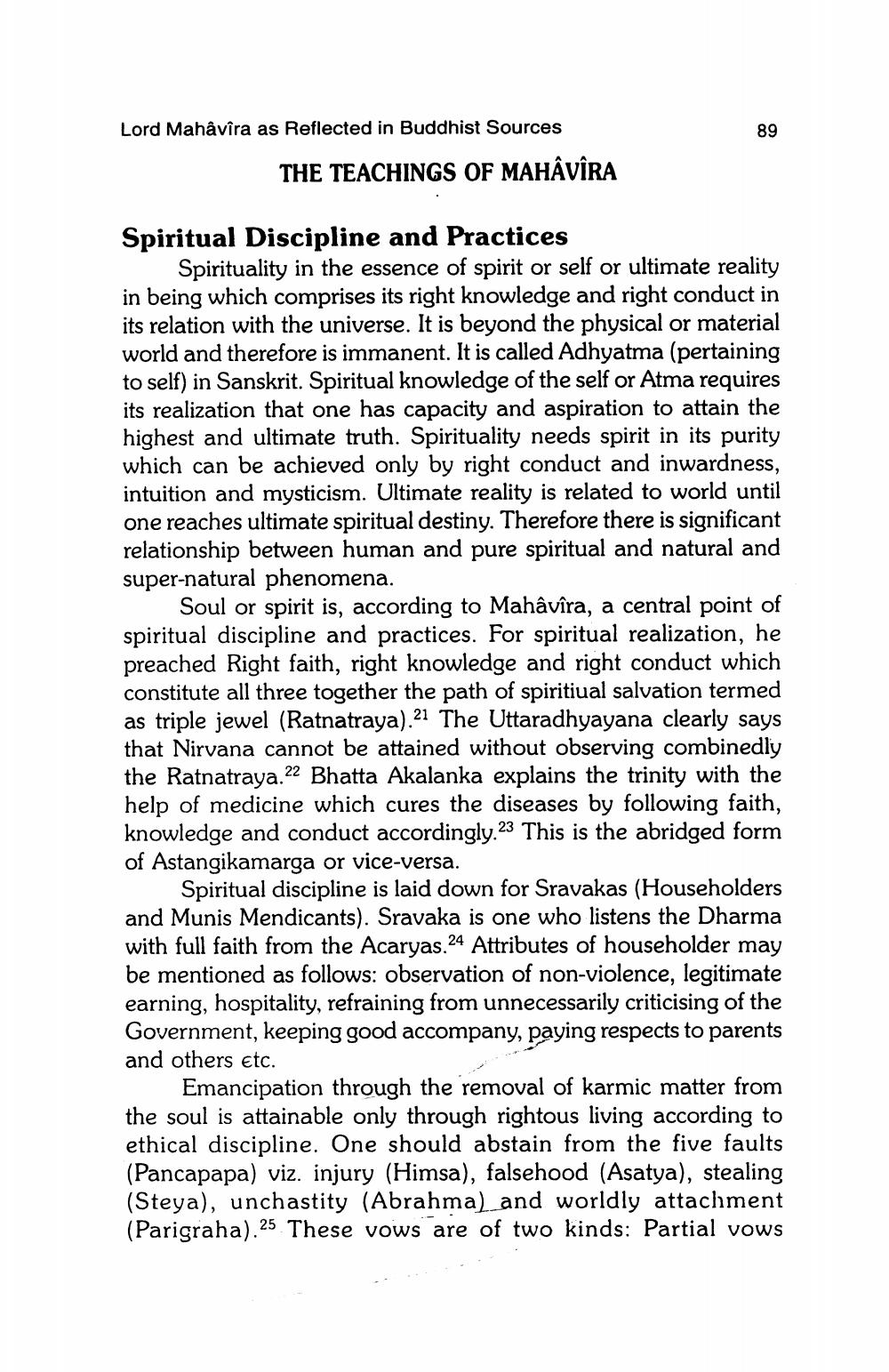________________
Lord Mahâvîra as Reflected in Buddhist Sources
THE TEACHINGS OF MAHAVIRA
Spiritual Discipline and Practices
Spirituality in the essence of spirit or self or ultimate reality in being which comprises its right knowledge and right conduct in its relation with the universe. It is beyond the physical or material world and therefore is immanent. It is called Adhyatma (pertaining to self) in Sanskrit. Spiritual knowledge of the self or Atma requires its realization that one has capacity and aspiration to attain the highest and ultimate truth. Spirituality needs spirit in its purity which can be achieved only by right conduct and inwardness, intuition and mysticism. Ultimate reality is related to world until one reaches ultimate spiritual destiny. Therefore there is significant relationship between human and pure spiritual and natural and super-natural phenomena.
Soul or spirit is, according to Mahâvîra, a central point of spiritual discipline and practices. For spiritual realization, he preached Right faith, right knowledge and right conduct which constitute all three together the path of spiritiual salvation termed as triple jewel (Ratnatraya).21 The Uttaradhyayana clearly says that Nirvana cannot be attained without observing combinedly the Ratnatraya.22 Bhatta Akalanka explains the trinity with the help of medicine which cures the diseases by following faith, knowledge and conduct accordingly.23 This is the abridged form of Astangikamarga or vice-versa.
Spiritual discipline is laid down for Sravakas (Householders and Munis Mendicants). Sravaka is one who listens the Dharma with full faith from the Acaryas.24 Attributes of householder may be mentioned as follows: observation of non-violence, legitimate earning, hospitality, refraining from unnecessarily criticising of the Government, keeping good accompany, paying respects to parents and others etc.
Emancipation through the removal of karmic matter from the soul is attainable only through rightous living according to ethical discipline. One should abstain from the five faults (Pancapapa) viz. injury (Himsa), falsehood (Asatya), stealing (Steya), unchastity (Abrahma) and worldly attachment (Parigraha).25 These vows are of two kinds: Partial vows




